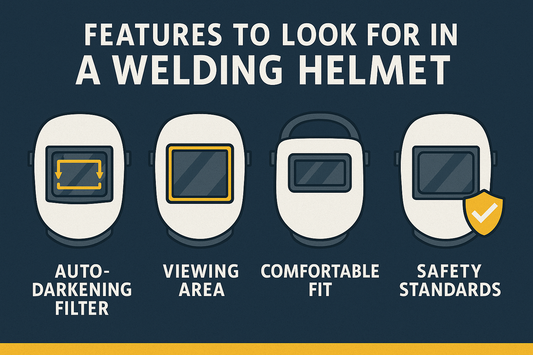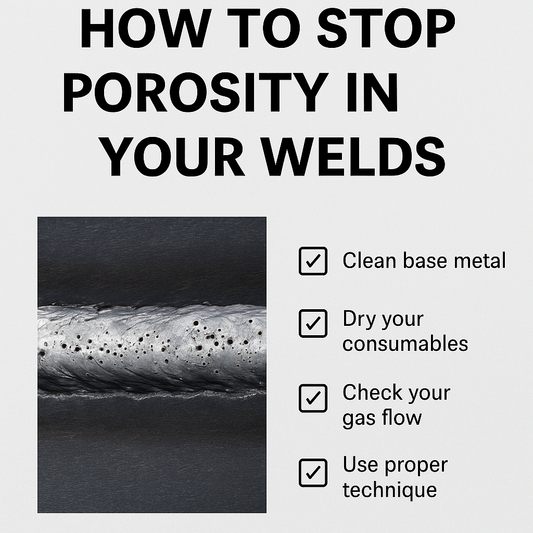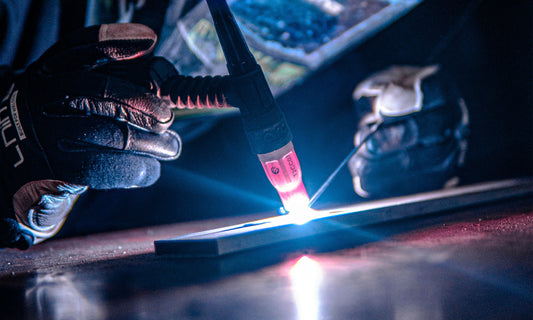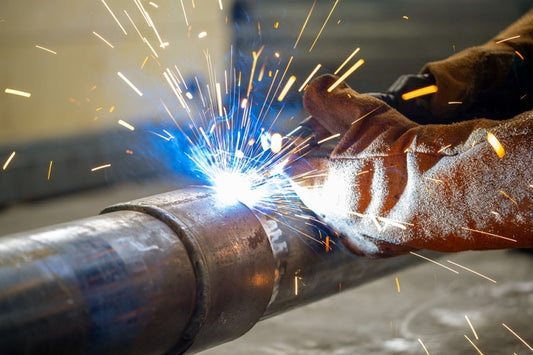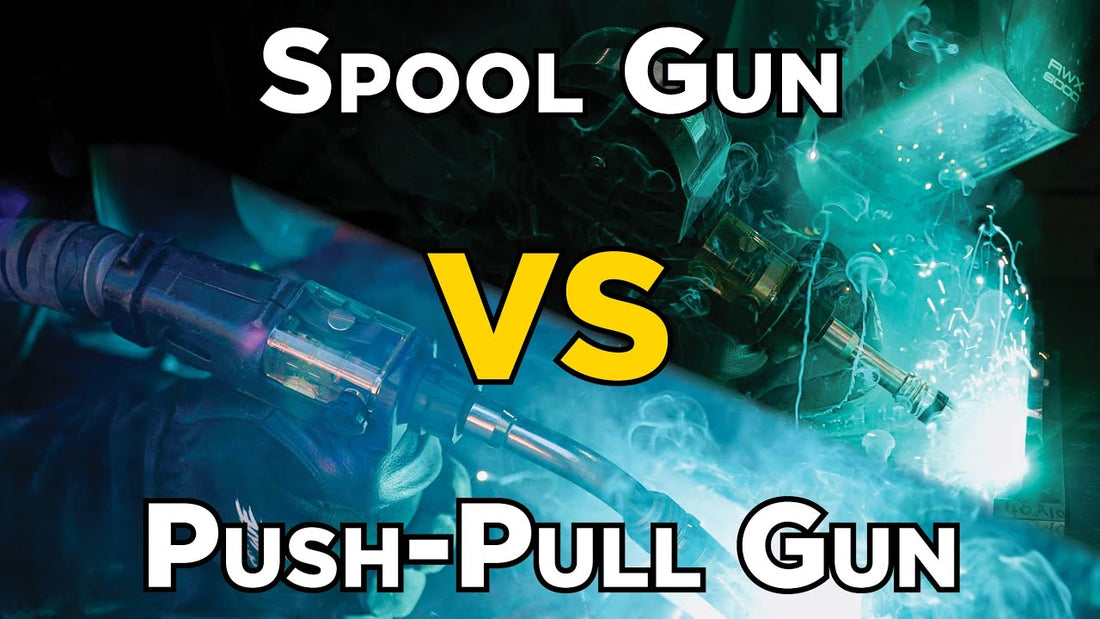
Spool Gun vs Push-Pull Gun
Share
Welding with aluminium can be a struggle, and there’s a lot of things that can go wrong as it’s a softer metal than steel. Because aluminium can be such a pain to work with when trying to MIG weld with it, several types of aluminium specific torches have been made to make the process easier.
Which one is going to work best for you?
What’s a Spool Gun?
A spool gun is a pistol grip style gun with a compartment for a wire spool roll to be attached directly onto the gun.
The gun also comes with its own drive rollers inside the gun, so the wire can feed from the spool, through the gun and out into the weld.
The wire only has to travel the length of the gun instead of through a 4-metre torch lead, which means there are so many less places for things to go wrong.
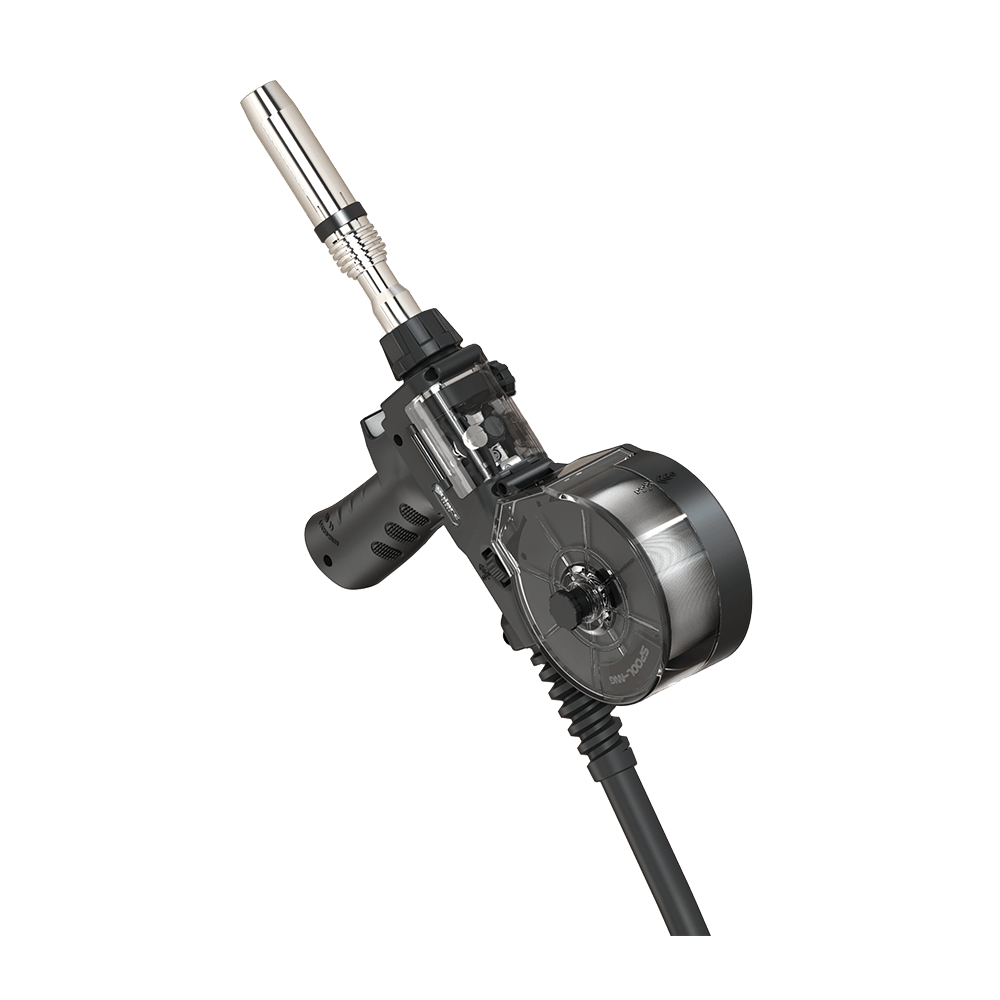
What’s a Push-Pull Gun?
A Push-Pull gun is a pistol grip style gun with a small, second motorised wire feeder directly in the gun.
This motor works in harmony with the feeder inside the machine, and together they achieve a smooth feed as the machine pushes the wire through the torch lead and the gun pulls it through from the other end.
A Push-Pull gun is more like a standard MIG torch than a spool gun, as the wire spool is still loaded up inside the machine and fed through the machine’s rollers and into the torch lead.
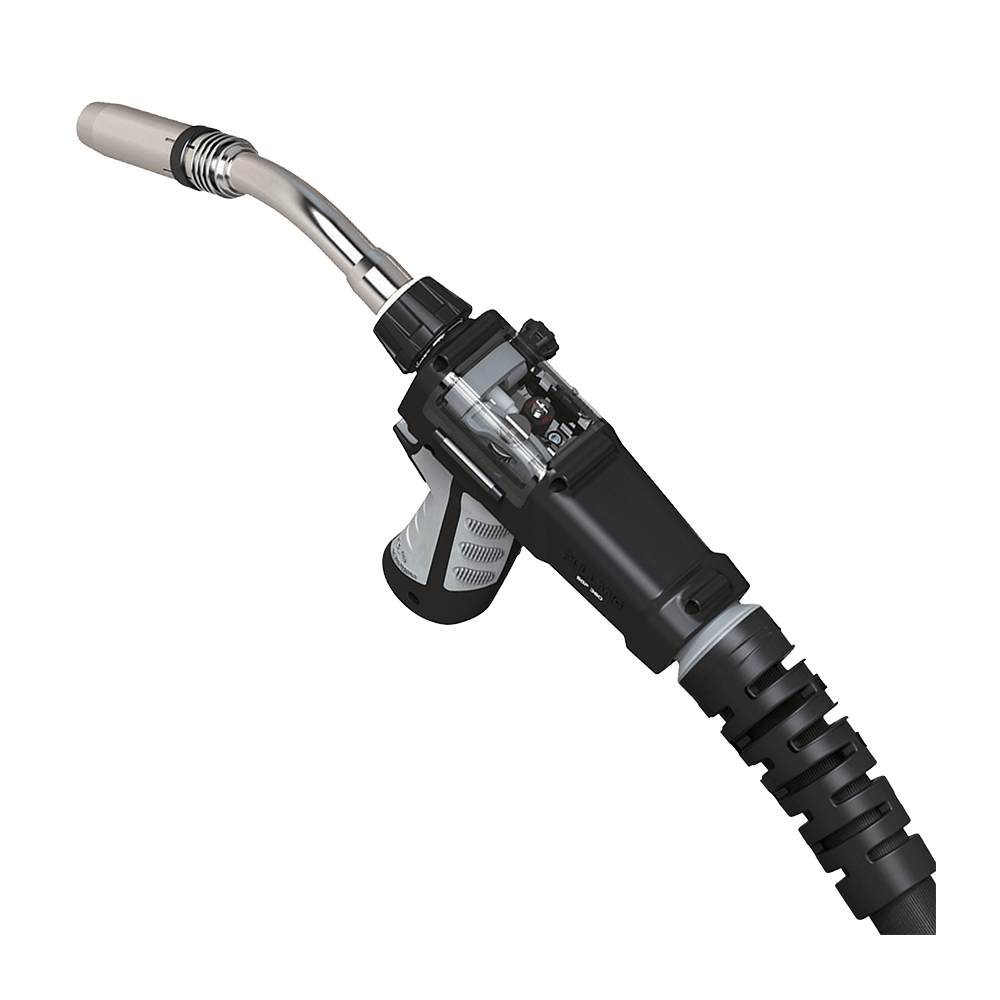
Which one should I use?
Spool guns and Push-Pull guns are both operated in the same way as a regular MIG torch; hold down the button, and off you go. They’re also both designed to weld aluminium (although you can swap your drivers and use steel in them if you really want).
Spool guns and Push-Pull guns have longer torch leads than standard torches; UNIMIG spool guns come with a 6-metre torch lead, and the Push-Pull guns come with an 8-metre lead.
Despite the fact that they were made to do the same thing, there are a couple of differences to consider when you’re picking between the two.
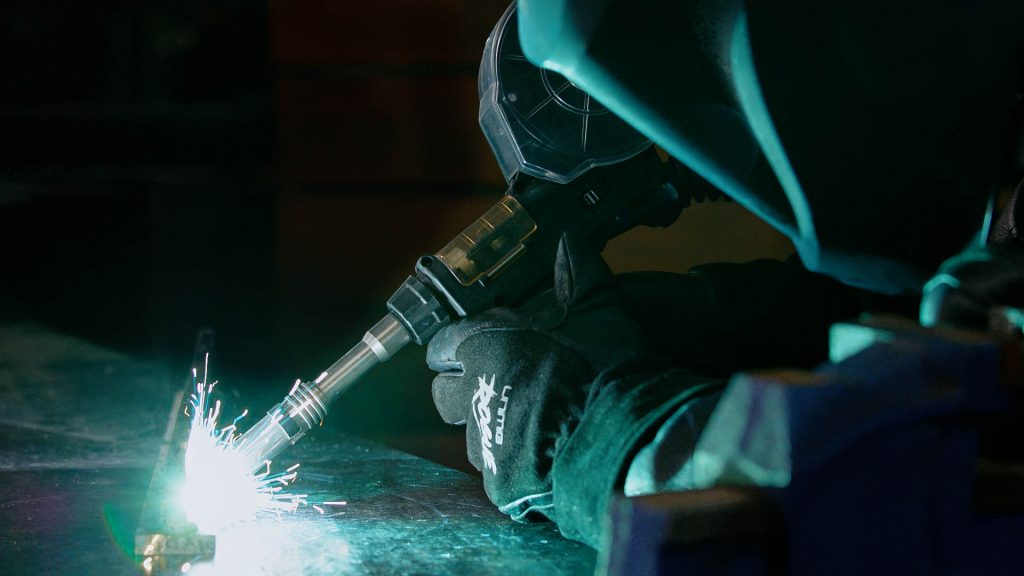
Spool guns totally eliminate the birdnest and wire kinking problems that are the biggest issues when it comes to aluminium. You’re going to save yourself a lot of time and material if you’re not always having to fix your wire because it’s kinked in the torch or just not feeding at all.
Generally, a spool gun is the best choice for aluminium if you’re using it for smaller applications or you only weld aluminium occasionally.
They don’t come with the ability to do as many max amps as a Push-Pull gun can, so their duty cycles are lower, meaning you can’t weld very thick material.
They also only have the capability of housing 1kg spools and can be heavy, fatiguing your hands faster because of the spool you’ll be supporting. That’s why they’re recommended for shorter welds.
The spool holder on the gun makes them bulkier than other guns, so you may find it harder to get into tight spots as well, as the gun’s angle is really important for a good weld.
Push-Pull guns can withstand higher amps than a spool gun, so they can weld for longer periods of time on thicker metals.

They have a different plug to a spool gun or MIG torch, so there are not as many machines that are compatible with them. However, the machines that do have the right connection also have the higher amp ranges that the Push-Pull guns are capable of.
A Push-Pull gun, though bulky, is usually lighter and smaller than a spool gun but still heavier than a standard MIG torch. It’ll fit into small or tight spaces better than a spool gun because it doesn’t have the spool holder getting in the way.
In general, if you’re planning on doing lots of aluminium welding or welding it for long periods in one go, a Push-Pull gun is for you.
However, if you need to swap between materials often, then a Push-Pull gun can be a pain. You’ll lose all the wire still inside the gun every time you switch before finishing a spool. Push-Pull guns are also usually much more expensive than spool guns.

